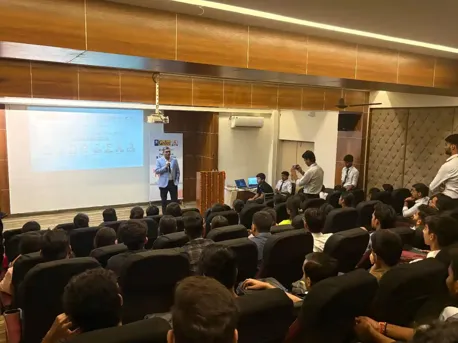Course Design By
Course Offered By

Neha Kapoor
Placed at Cognizant

Siddharth Jain
Placed at EY (Ernst & Young)

Anjali Rao
Placed at Capgemini

Kunal Verma
Placed at Wipro

Pooja Nair
Placed at Infosys

Virat Sharma
Placed at TCS

Sneha Iyer
Placed at Deloitte

Arjun Mehta
Placed at Accenture
This Data Engineering Online Course is designed to explain how data is collected, cleaned, stored, and delivered for reporting and analytics. The Best Online Course For Data Engineering focuses on real business data problems and how data engineers solve them using simple tools and structured methods. This Data Engineering Best Course matches current industry needs.
What You Get
Course Design & Approved By

Nasscom & Wipro
Our Data Engineer Course With Placement is taught slowly & clearly so learners never feel confused. Each topic is explained in simple words with real-life examples. Data Engineering Course focuses on how data flows inside real companies helping learners become confident.
Get a peek through the entire curriculum designed that ensures Placement Guidance
Course Design By


Course Offered By

Top Job Profiles:
Average Salary Range:
Top Job Profiles:
Average Salary Range:
Top Job Profiles:
Average Salary Range:
Top Job Profiles:
Average Salary Range:
Start your career journey with our job-focused Data Engineer Course With Placement. Join our Data Engineering Training and gain real-world skills required by top companies.
Learn through Data Engineer Online Training from a professional trainer with over 10 years of industry experience. The trainer has worked on real data engineering projects and trained thousands of students.

The syllabus at Croma Campus covers topics such as data modeling, ETL processes, data warehousing, and big data technologies like Hadoop and Spark.
Yes, with the right education and training, a fresher can become a data engineer, especially through specialized courses and hands-on experience.
This Data Engineering Course covers data ingestion, storage, processing, SQL, and real projects.
Learning at Croma Campus offers comprehensive training with experienced instructors, practical hands-on projects, and placement assistance, ensuring a strong foundation for a career in data engineering.
Fundamentals of data engineering include understanding data types, structures, database concepts, and basic principles of data processing and analysis.
After completing the course, you can pursue roles such as data engineer, big data engineer, database engineer, ETL developer, or cloud data engineer.
Yes, Croma Campus offers placement assistance to its students, helping them secure job opportunities as data engineers or related roles in the industry.
The stages typically involve learning foundational concepts, advanced techniques, hands-on projects, and practical application of skills in real-world scenarios.
ETL stands for Extract, Transform, Load, which refers to the process of extracting data from various sources, transforming it into a usable format, and loading it into a target destination, such as a data warehouse or database.
Yes, the Data Engineer Training And Placement program starts from basics and is beginner-friendly.
Yes, the Data Engineering Online Course includes notes, recordings, assignments, and projects.
+ More Lessons
Course Design By

Nasscom & Wipro
Course Offered By

Croma Campus

Scenario: Supporting business dashboards
Outcome: Dashboards always showed correct data

Scenario: Making sure data stays correct
Outcome: Data stayed correct and trustworthy.

Scenario: Preparing data for reports
Outcome: Reports became faster and more accurate.

Scenario: Storing data safely
Outcome: Data was safe and easy to find.

Scenario: Moving data automatically.
Outcome: Data started moving automatically.

Scenario: Changing raw data into useful data.
Outcome: Data became ready for reports and analysis.

Scenario: Fixing messy data
Outcome: Data became clean and easy to work with

Scenario: Collecting data needed for work.
Outcome: Data was ready to be used for the next steps.
Company: Cognizant
Location: Pune
Experience: 0–2 Years
Required Skills: Python, SQL, ETL/ELT Fundamentals, BI Tool Intro.
Company: Infosys
Location: Hyderabad
Experience: 0–1 Years
Required Skills: SQL, Python, Basic Cloud (AWS/GCP), Data Warehousing.
Company: Deloitte
Location: Mumbai
Experience: 0–2 Years
Required Skills: SQL, Python, ETL Tools (Airflow/AWS Glue).
For Voice Call
+91-971 152 6942For Whatsapp Call & Chat
+91-9711526942